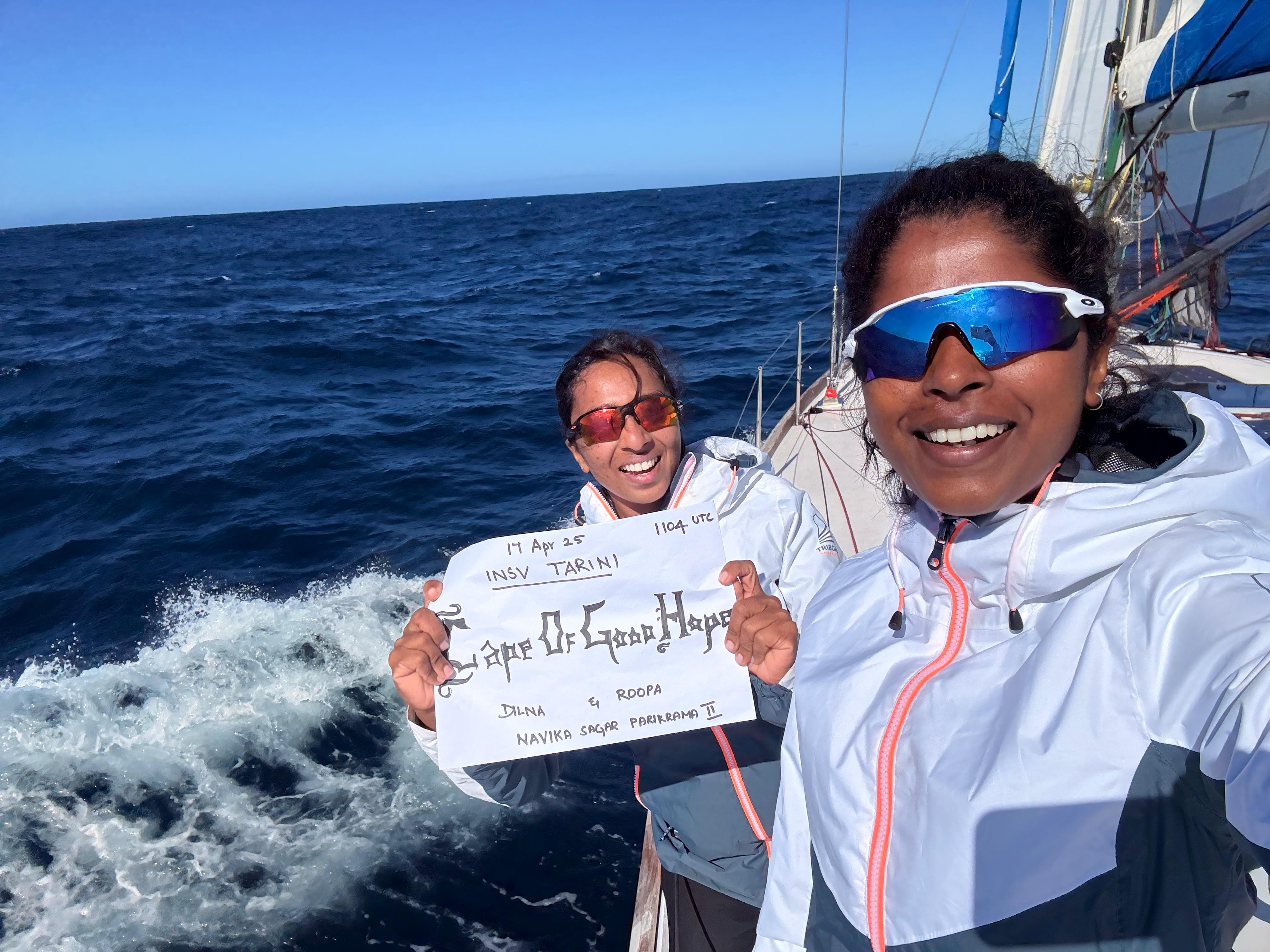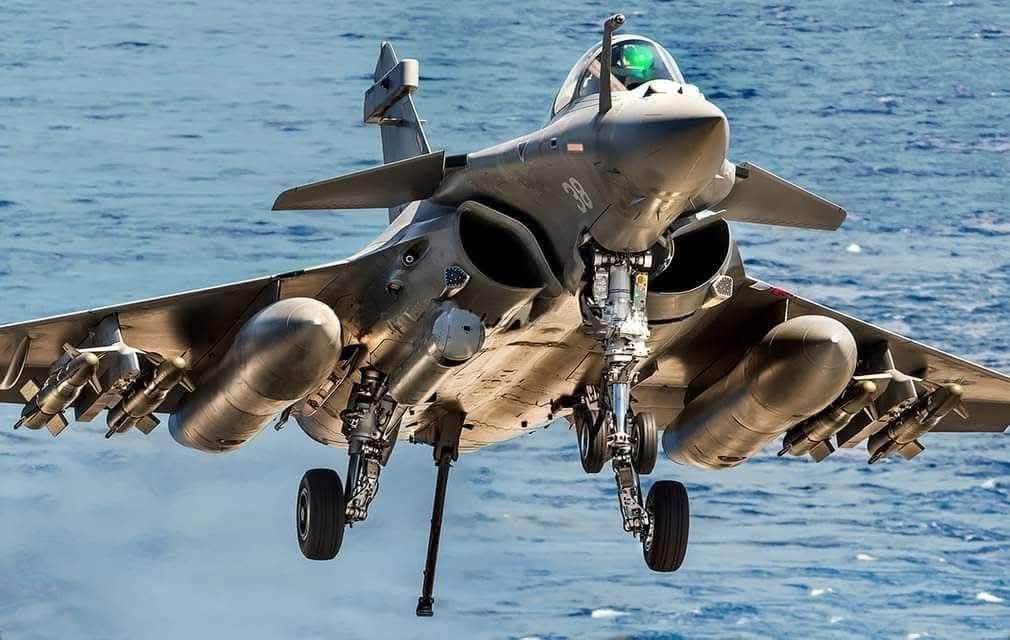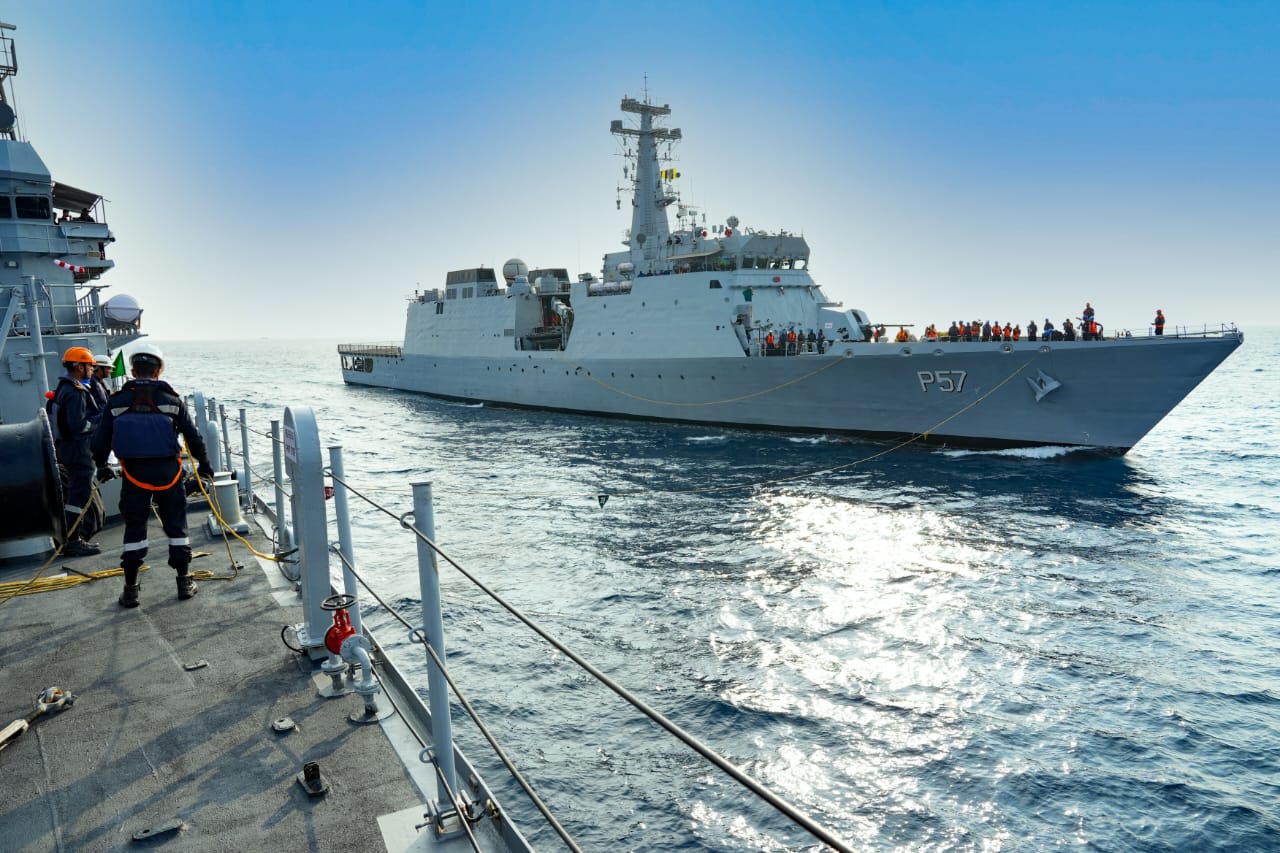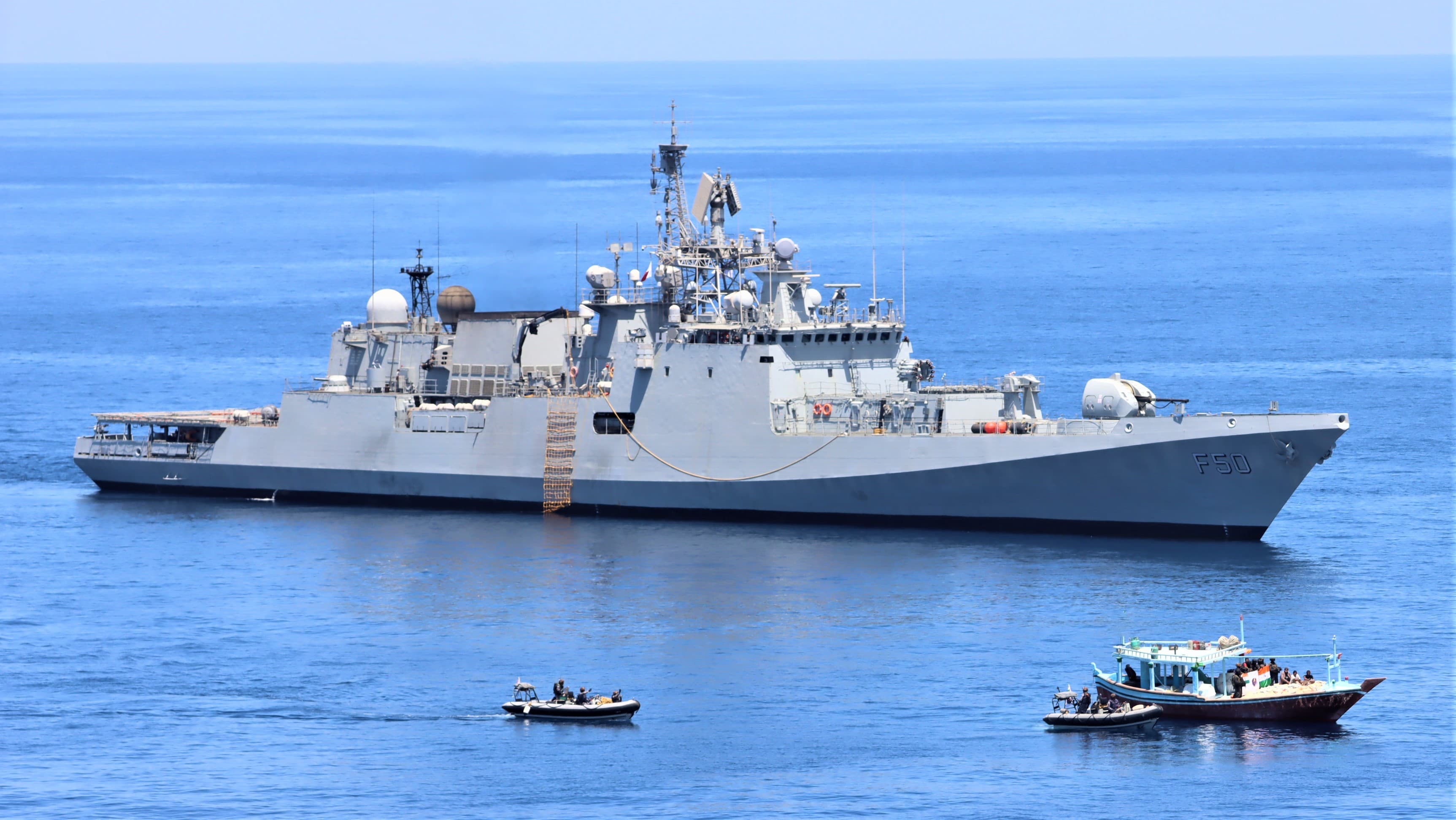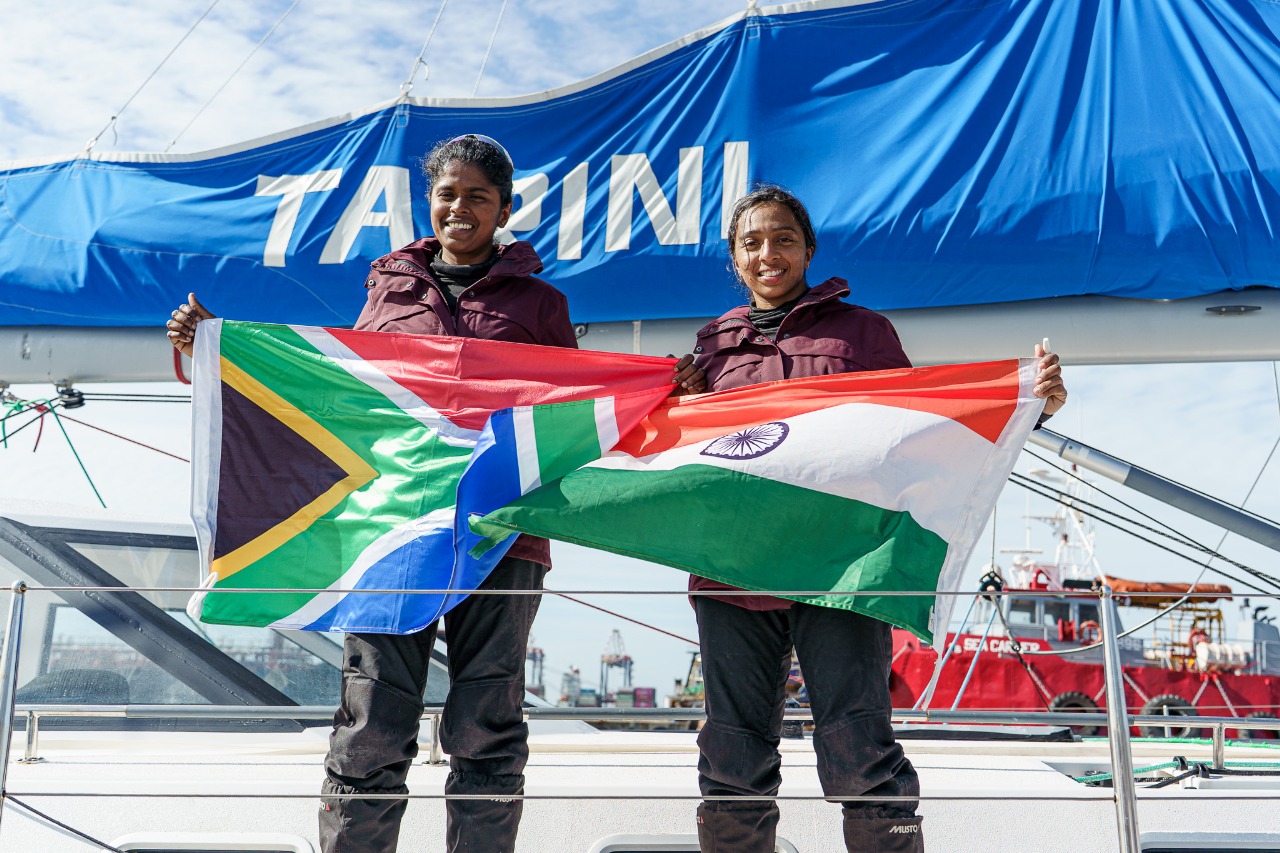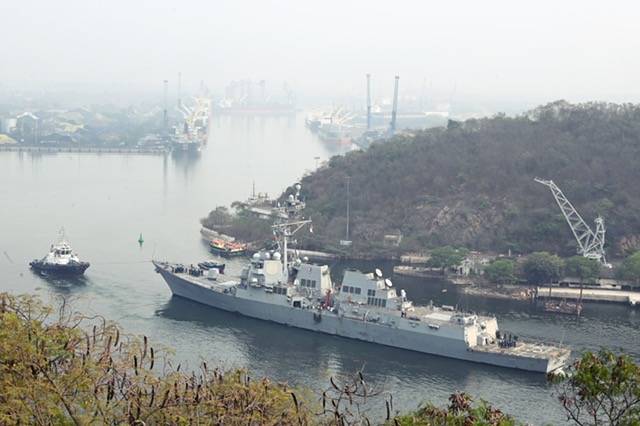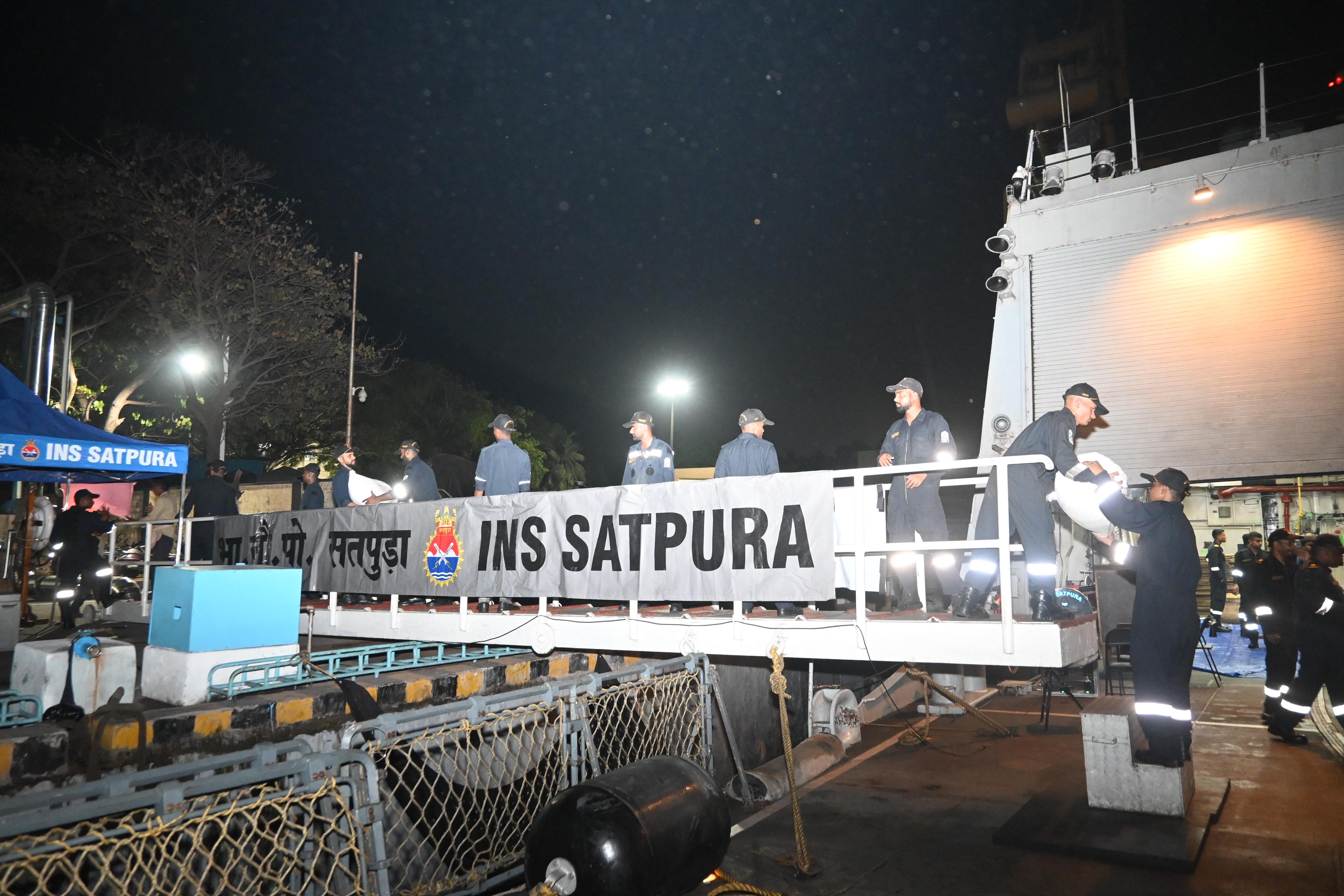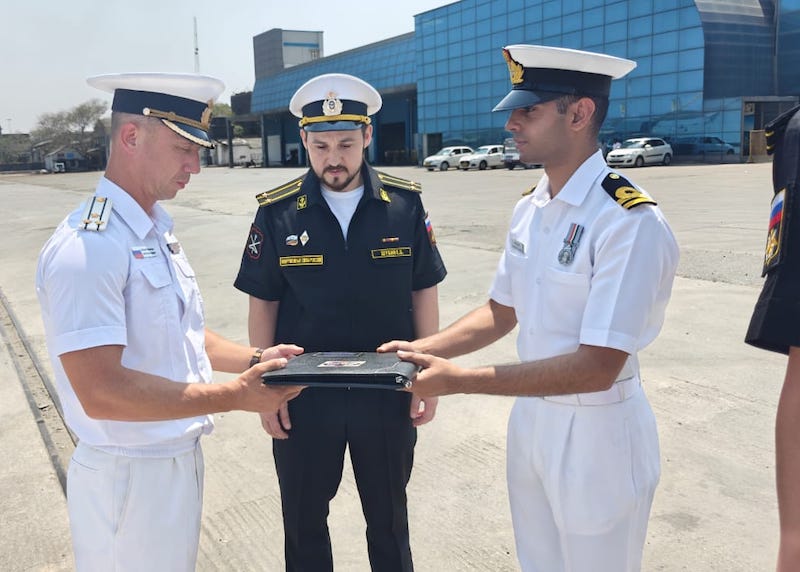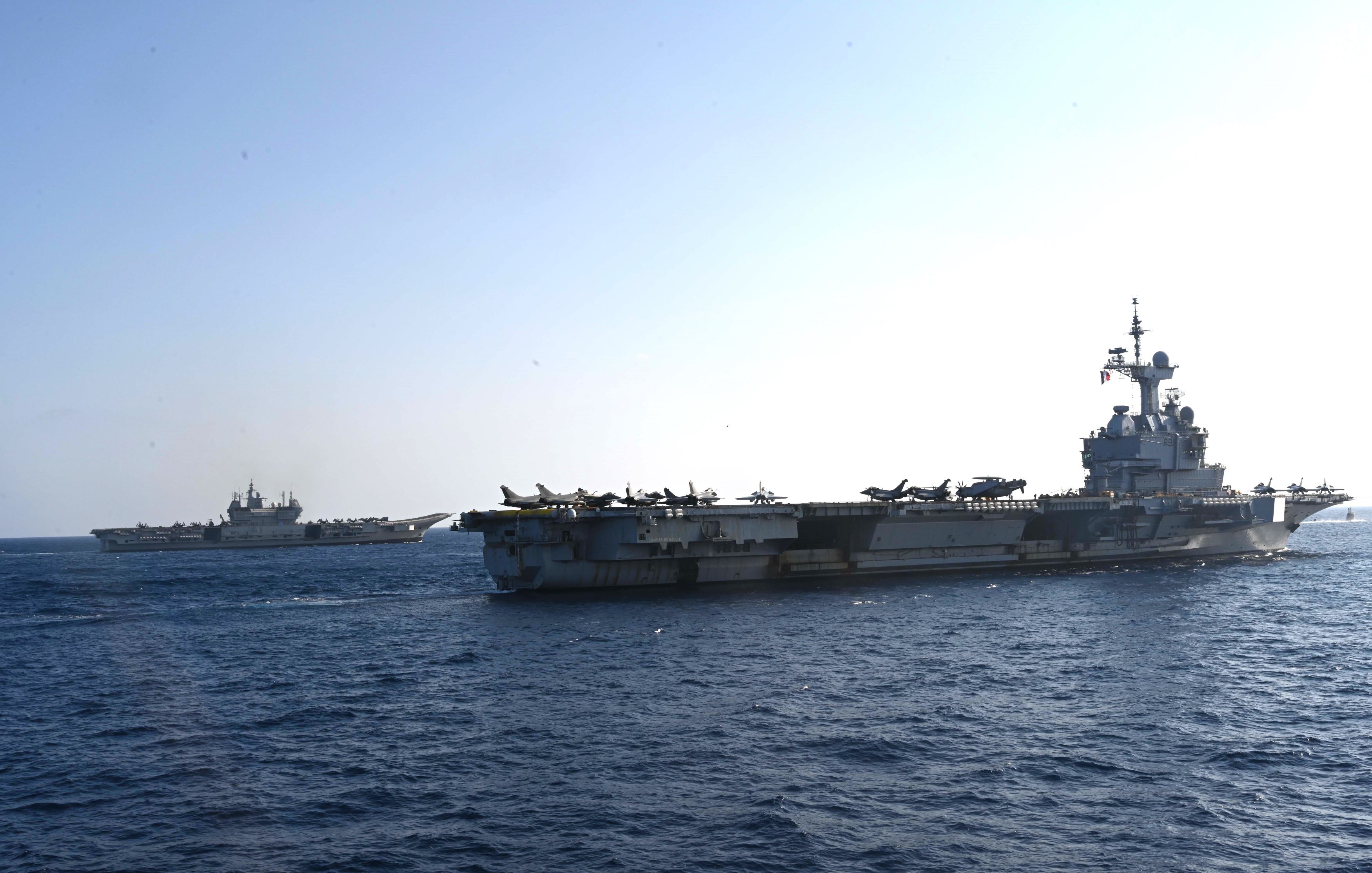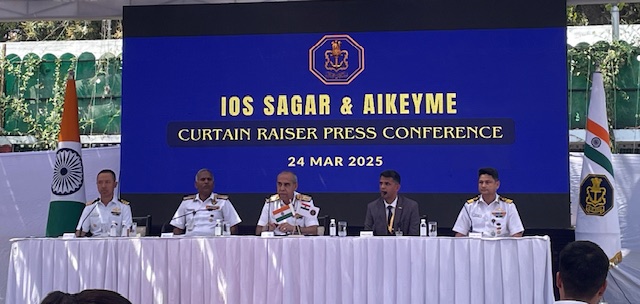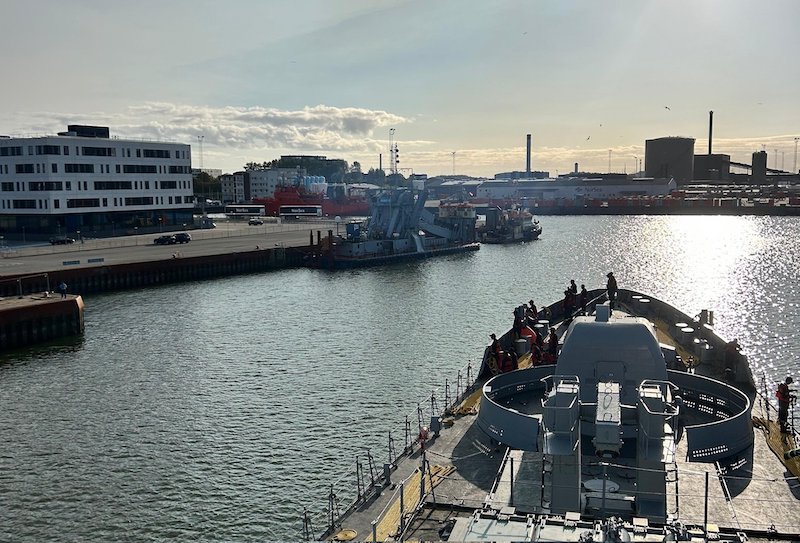 This Indian Navy photo taken from INS Tabar shows the warship entering the Esbjerg harbour in Denmark, on August 19, 2024.
This Indian Navy photo taken from INS Tabar shows the warship entering the Esbjerg harbour in Denmark, on August 19, 2024.
New Delhi: The Indian Naval Ship (INS) Tabar, a frontline guided-missile stealth frigate, has arrived in Esbjerg, Denmark, for a two-day visit aimed at bolstering naval cooperation between India and Denmark. The visit, which commenced on Monday, underscores the growing maritime collaboration between the two nations.
This is the Indian warship’s fifth European port call and joint drills with European navies since July. Earlier, INS Tabar visited St Petersburg, Russia; Hamburg, Germany; London, United Kingdom; and Gothenburg, Sweden.
Commanded by Captain MR Harish, INS Tabar was warmly welcomed by the Danish armed forces upon its arrival at the Esbjerg harbour. The visit is part of the Indian Navy’s ongoing efforts to enhance bilateral relations and foster mutual understanding with navies around the world.
During its stay, the crew of INS Tabar will engage in a series of professional interactions with their Danish counterparts. These interactions are designed to facilitate the exchange of best practices and operational experiences, thereby strengthening the operational capabilities of both navies. Additionally, cultural exchange programmes have been organized to showcase Indian culture and hospitality, further deepening the bonds of friendship between the two countries.
The visit of INS Tabar to Denmark reflects the strong diplomatic relationship between India and Denmark. The India-Denmark bilateral partnership was elevated to a “green strategic partnership” following a virtual summit between the prime minister, Narendra Modi, and his Danish counterpart, Mette Frederiksen, in September 2020.
INS Tabar, equipped with a comprehensive array of weapons and sensors, is one of the Navy’s earliest stealth frigates. It is part of the Western Fleet, headquartered in Mumbai under the Western Naval Command. The ship carried a crew of 280 officers and sailors. Its advanced capabilities make it a formidable asset in maritime security operations.
INS Tabar’s Denmark visit is expected to pave the way for more such engagements in the future, contributing to the overall security and stability of the region.

